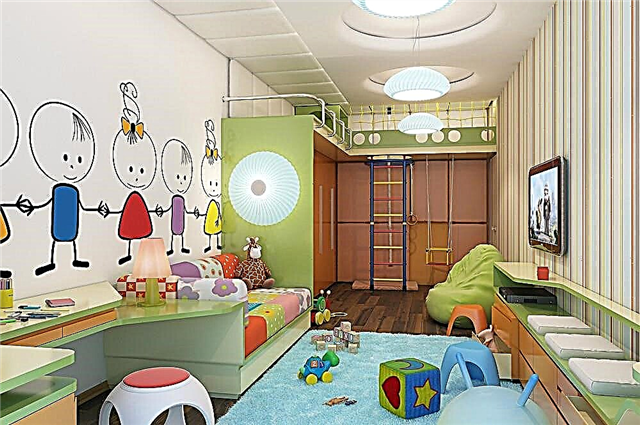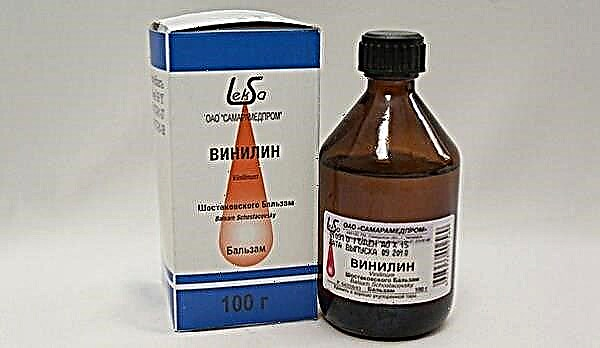
A woman is biologically and physiologically capable of becoming a mother only at a certain age period. The reproductive age of the fair sex, unfortunately, is shorter than that of men, who, from youth to old age, are given the opportunity to fertilize by nature. It is not enough for a woman to be able to conceive, she needs to be able to bear and give birth to a baby. Knowing the boundaries of fertile age allows women to plan motherhood in time.

What it is?
There are several views on fertility as the ability to reproduce. Politicians and specialists in the field of demography assess it in terms of the average total fertility rate, which requires such a concept as reproductive age. For statistics, the average age from the end of puberty to the onset of menopause is used. According to the WHO (World Health Organization), reproductive age interval from 15 to 55 years (in Russia, the period from 15 to 49 years is often considered the statistical reproductive period).
Doctors have their own views on this issue. They do not rely on the only parameter - menopause as the end of reproductive age. They take into account the nuances that are important for conception, gestation and childbirth. That is why there are concepts such as early and late pregnancy, which are associated with certain risks to the life and health of women in labor and children.
In medicine, reproductive age is considered to be from 16 to 49 years old, while doctors call the age from 20 to 40 years optimal for the birth of a child. Although there are many cases of successful pregnancy and childbirth after 45 years, and after 50 years, and even after 60 years.

Where does this time frame come from, and who decides when a woman is best to give birth? This is dictated by the female nature, which has provided for a certain cyclical work of the female body. Girls are born with amazing reproductive theoretical capabilities - oocytes in the ovaries of a newborn baby are more than a million immature oocytes. This is the ovarian reserve, which is assigned to a woman once and for life, it is not replenished, new sex cells, as is the case in men, are not produced. When the reserve is exhausted, the woman will enter the climacteric period.

A considerable part of the oocytes perish even before the onset of puberty under the influence of negative factors - diseases, environmental conditions, stress, etc. The rest during puberty begin to be consumed "as intended." Each month, one (more rarely - more) egg matures. If fertilization occurs, pregnancy occurs, if not, menstruation begins, and in a new cycle, another oocyte matures again.
With each passing year, a woman's fertility decreases, since the number of cycles without ovulation (maturation and release of a mature egg) increases. For example, at 20 years of age, such cycles can be at most 1-2 per year, and after 35 years, the number of anovulatory cycles may well reach 5-6 per year.
Fertility decreases depending on age, and if the probability of conceiving at 20-25 years old within one cycle is at the level of 30-33%, then after 40 years a woman has only 3% of the probability of conceiving a baby within one menstrual cycle.
With age, the woman's health deteriorates, chronic diseases appear that can prevent the child from being carried, even if conception takes place. The genetic material, the carrier of which is the germ cell, is gradually "aging", it can mutate, which is why the risks of chromosomal fetal abnormalities (Down syndrome, Turner syndrome, Edwards, Patau and other severe diagnoses) are higher in older mothers.
That is why the medical framework of reproductive age is different from the statistical one. Even if a woman at 50 still has regular menstruation, this does not mean that she has a rich ovarian reserve, and the age-related decrease in the production of sex hormones will allow her to conceive and bear a baby. And the theoretical possibility of conceiving a child at the age of 15 does not at all guarantee a normal gestation and childbirth at this age.

Periods of female reproductive age
A woman's reproductive life is conventionally divided into several periods, which, according to WHO, are called fertile age groups. When compiling statistics, this division is usually not taken into account, since the total number of women of reproductive age is taken. For doctors and the task of planning pregnancy, the division into fertile periods is very important.
Early fertile period - begins with the arrival of the girl's first menstruation. This can happen at different ages. Recently, puberty begins earlier than half a century ago, and today there are many cases when the first menstruation comes at both 8 and 9 years old. The average age of onset of puberty in girls is 10-12 years. From this age until the age of 20, a girl is considered conditionally fertile. Ovulation occurs infrequently, not systematically, the menstrual cycle itself does not differ in regularity, the hormonal background is not fully established. With all this, the probability of pregnancy is very high, but the likelihood of successfully carrying a child and giving birth is low. There are almost no pregnancies without complications in the early fertile period.
Average fertile period - starts at the age of 20 and continues until the woman reaches the age of 35. The latest WHO recommendation is to extend the period to 40 years. Ovulation in women occurs regularly, the hormonal background is relatively stable, the woman's health is satisfactory, usually there are no chronic ailments yet, and therefore the probability of conception and successful bearing of a child is as high as possible. After 35 years, a gradual increase in anovulatory cycles begins, and therefore the probability of pregnancy in one cycle statistically begins to decrease. It is for this period that it is recommended to plan childbirth.
Late reproductive period - starts at 40 and ends at 45. Many ovulations occur quite regularly, although the total number of anovulatory cycles is already high, menstruation is regular, monthly, but in the ratio of sex hormones, changes invisible to the eye begin to occur, under the influence of which aging processes begin, and the reproductive system begins pre-menopausal restructuring. The likelihood of pregnancy is still there, and the opportunity to bear and give birth to a child is also quite real, but the chances are already noticeably lower, and therefore at this age, pregnant women should be provided with hormonal support for pregnancy, a special approach is also required to the tactics of delivery.
Period of decline in fertility, attenuation - after 45 years and conditionally up to 58-60 years, a woman has a menopause. Someone earlier, someone later. This largely depends on heredity, on the state of health, on living conditions and even on race. Even if menstruation persists, hormones make it almost impossible to conceive and carry a baby. And if pregnancy occurs, then she definitely needs hormonal support.

Pregnancy planning should take place with the obligatory consideration of the reproductive period, which is determined by age.
And if in the middle reproductive period it will be enough for a woman to undergo an examination for infections before conceiving a baby, then in the late period hormonal stimulation of ovulation, IVF may already be required, and in a dying fertile period - egg donation, surrogacy, IVF. Taking into account the fact that assisted reproductive technologies are quite well developed and continue to improve, the age of reproduction in women is growing. Even 50 years ago, they left it at the age of 40-45. Today, medicine can help women over this age find the joy of motherhood.

According to the register of pregnant women and women of fertile age in Russia, the most “favorite” age period for childbirth in the country today is the age from 25 to 37 years.
How to prolong fertility?
Prolongation of reproductive age has nothing to do with the problem of prolongation of youth, and therefore one should not think that the elimination of wrinkles and SPA procedures can somehow affect the biological clock of a particular lady. The duration of a woman's fertile period is largely influenced by her race and heredity. It has been proven that women whose mothers entered the climacteric period late also retain the ability to bear children longer., while ladies, mothers and grandmothers who have experienced early menopause, risk joining the ranks of women who have left the fertile period after 40-45 years.
African women retain their reproductive ability biologically longer than northerners and Asians.

It is clear that a woman cannot influence these factors. But it's not just nationality and heredity that affect fertility. Therefore, a woman may well prevent and reduce other negative factors of influence.
For a longer preservation of fertility, the following is recommended.
Get rid of and avoid bad habits - both smoking and taking alcoholic beverages (in any quantities) negatively affects the state of the vessels, and therefore the blood supply to the gonads is insufficient, which leads to an early termination of their normal functioning.
Live active and watch your weight - low mobility and extra pounds lead to early hormonal imbalance, which will certainly affect ovulation processes. The higher the weight, the more difficult it is to conceive a baby even at 25-30 years old, while in women with normal weight, the chances of conceiving are always higher even after 35 years.
Avoid chronic stress and be able to get rid of nervous tension - due to the influence of psychogenic factors, even young women suffer from idiopathic infertility, which accounts for about 15% of all cases. Such problems are very difficult to treat. If a woman monitors the state of her emotional and psychological sphere, then her fertile abilities remain high longer.
Adhere to a measured lifestyle, be sure to get enough sleepPaying attention to a sufficient night's sleep, do not starve, do not exhaust yourself with diets, but also do not overeat.
To visit a gynecologist not only then, there is an urgent need for it, and with a preventive purpose at least once a year, and after 35 years - 2 times a year. The doctor will be able to notice the first signs of various pathologies and disorders at a very early stage, and the sooner a woman heals the ailments, the longer she can maintain the ability to conceive and bear children.

From the very puberty period, the girl needs to be told about the rules of personal intimate hygiene, about the dangers of abortion, uncontrolled contraception, about the negative impact of early onset of sexual activity. All this will allow you to maintain a normal level of fertility for many years.
Women who want to stay longer in reproductive age should avoid working in hazardous industries, contact with toxic and toxic substances, long night work, and activities in conditions of high radiation levels.




